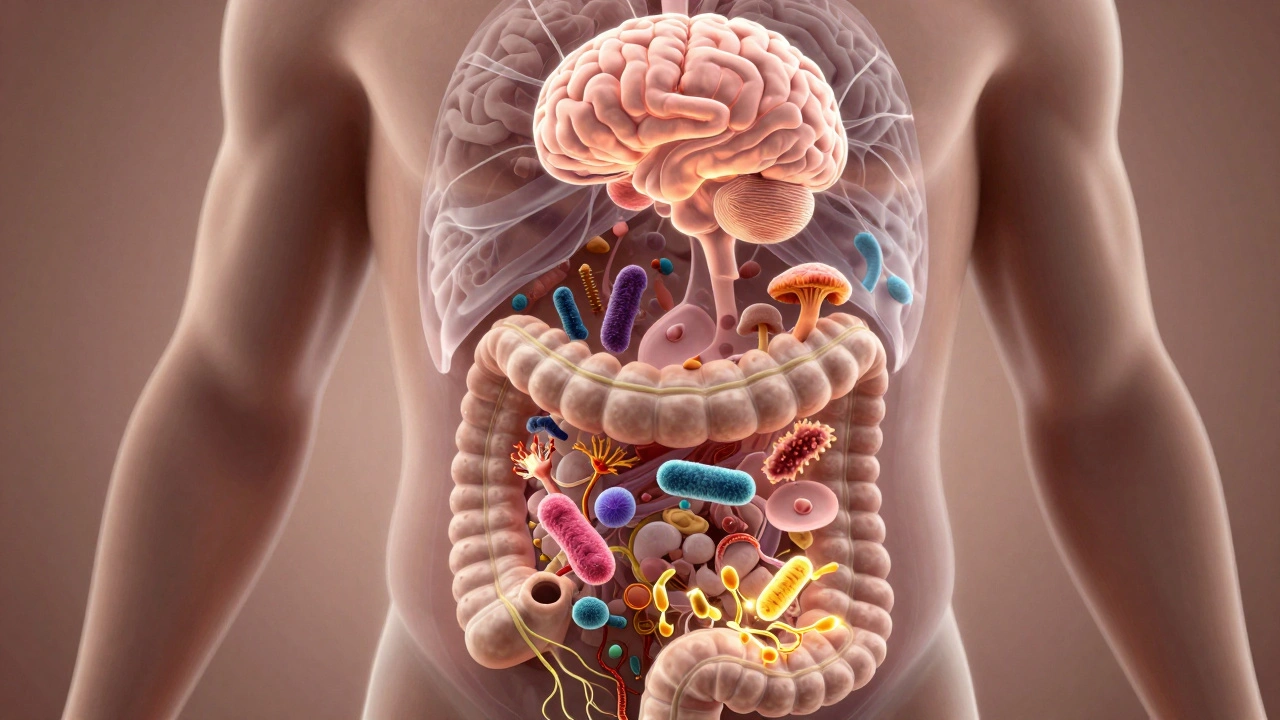Gut Microbiome: How to Keep Your Dog's Gut Healthy
Most dog owners don't realize the gut controls more than digestion. Up to 70% of the immune system lives near the gut, and gut bacteria influence energy, mood, skin, and allergy risk. That makes the microbiome one of the best targets when your dog has chronic issues.
Signs your dog’s gut needs help
Look for loose or irregular stools, frequent gas, sudden bad breath, itchy skin, dull coat, or low energy. Behavior changes—like irritability or reduced play—can also relate to gut imbalance. If the issue follows antibiotics, boarding, or a sudden diet change, the microbiome is a likely suspect.
Practical steps to improve gut health
Start with food. Small, gentle meals of plain boiled chicken and pumpkin for a day or two can settle stool. Then move to a steady diet high in quality protein and moderate fiber. Fiber matters: soluble fiber feeds good bacteria. Add canned plain pumpkin, cooked sweet potato, or green beans as simple sources.
Use prebiotics and probiotics smartly. Prebiotics like beet pulp, chicory root, and banana-resistant starch feed native microbes. Probiotics supply live strains to help rebalance the gut after disruption. Choose dog-specific products with strains shown in animals—Lactobacillus, Bifidobacterium, Enterococcus faecium, or certain Bacillus strains. Avoid human yogurts with added sugar or artificial sweeteners; xylitol is toxic to dogs.
Fermented foods can help if introduced slowly. Small amounts of plain kefir (no sweeteners) or fermented vegetables mixed into meals may boost diversity. Start with a teaspoon for small dogs and watch stools for 48 hours.
Avoid quick fixes like high-dose human supplements unless your vet approves. Antibiotics are sometimes necessary, but they wipe out good bacteria too. Ask your vet about using a probiotic during and after antibiotic courses to reduce long-term disruption.
Monitor changes. Keep a simple log: stool quality, energy, eating, and skin condition for two weeks after any change. Most improvements take 2–8 weeks. If severe diarrhea, vomiting, weight loss, or blood in stool appears, contact your vet right away.
Consider testing in stubborn cases. Stool panels and veterinary microbiome tests can show imbalances or parasites. A targeted plan from your vet or a veterinary nutritionist—adjusting diet, adding specific probiotics, or trying a therapeutic food—often works better than guesswork.
Small habits count. Regular feeding times, slow-feeders for fast eaters, fresh water, and stress reduction during travel or kenneling help the gut recover. Massage around the belly can ease digestion—gentle clockwise strokes after meals may calm motility.
Puppies, seniors, and dogs with medical conditions need personalized plans. Puppies benefit from gradual exposure to diverse foods and vet-approved probiotics after weaning. Older dogs often need more fiber and gentle prebiotics to support slower digestion. Always start any new supplement at a low dose and watch your dog's stool and energy for a week before increasing.
Treat gut health as ongoing care, not a one-off fix. With steady food choices, the right supplements, and vet guidance, most dogs’ microbiomes return to balance and stay healthier long term.

Unlocking the Secrets of Gut Health
Discover the real secrets to gut health-how food, stress, and microbes shape your digestion, mood, and immunity. Learn what actually works to heal your gut naturally, without fads or supplements.

Harnessing Gut Health to Thrive with Diabetes
The link between gut health and diabetes is more significant than many realize. This article dives into the complex relationship between the gut microbiome and insulin sensitivity. It offers insight into how gut health is a key player in managing diabetes and provides actionable tips to improve it. By understanding this connection, individuals can adopt strategies that promote better metabolic health.

Hellerwork: Your Ultimate Solution for Body Aches
Jan, 28 2026



